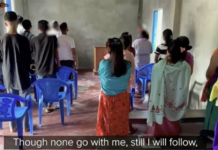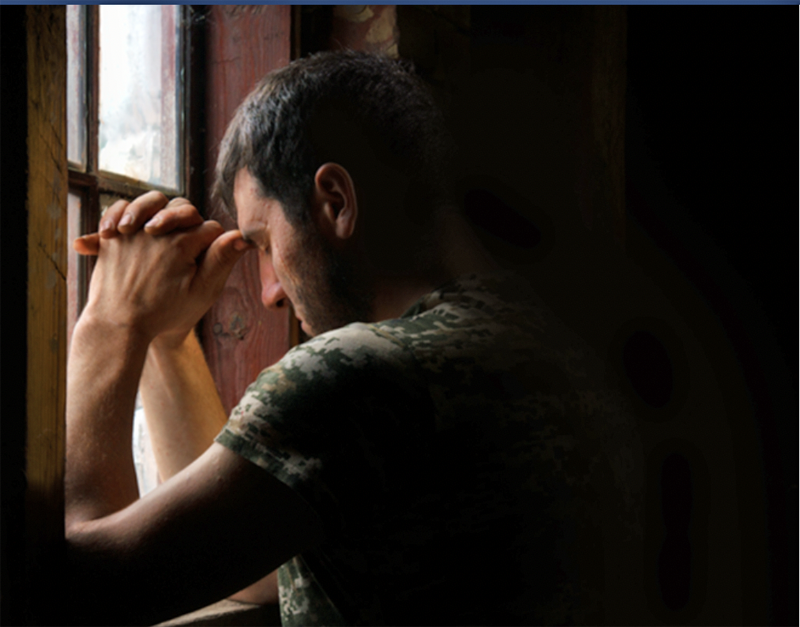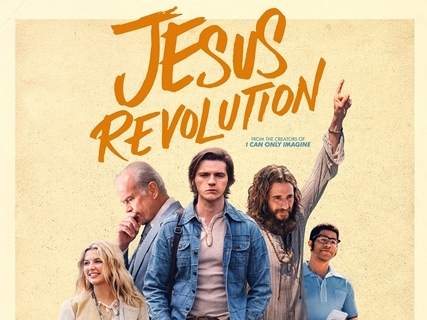 ALBUQUERQUE, NEW MEXICO—Due to the coronavirus (COVID-19), life has changed. Troubles surmount; trials keep coming. But as Pastor Skip Heitzig states in a recent message, “When trouble overwhelms you, let God overwhelm your trouble.”
ALBUQUERQUE, NEW MEXICO—Due to the coronavirus (COVID-19), life has changed. Troubles surmount; trials keep coming. But as Pastor Skip Heitzig states in a recent message, “When trouble overwhelms you, let God overwhelm your trouble.”
As part of Calvary Church Albuquerque’s ministry through the cornovirus outbreak, Pastor Skip Heitzig is tackling the trouble head-on, taking the Bible to the battle.
During Calvary Church at Home Wednesday evening services, Pastor Skip addresses key components on how to deal with the crises.
Keep Healthy: Take a LAP
As most are aware, there’s lots of health-talk during the COVID-19 catastrophe. We need to keep our bodies, minds, and souls well during this time. Cultivating a strong Christian life is akin to training the body for a run (see Hebrews 12:1-2). To help facilitate an exercise plan that is useful for building your spiritual life, we encourage you to follow these three simple steps, taking a LAP around Pastor Skip’s Calvary Church at Home teaching:
Listen to the main points and thoughts shared by Pastor Skip in the teaching. We’ve summarized the salient points below. To listen to the sermon, click here.
Answer the questions based upon the message, helping you take the thoughts captive to the obedience of Christ (2 Corinthians 10:5). Questions are provided below.
Pray. We’ve offered prayer points based on the above listening and answers sections.
In The Quarantined Life, Pastor Skip provides poignant and practical advice, giving principles for a theology of the quarantined.
 Listen
Listen
I know a bit about the quarantined life. As a teen, I spent one month in my room. Likewise, throughout history people have been quarantined, from the Middle Ages (plague) to the yellow-fever outbreaks of the 1870s to the typhus outbreak in New York in 1892. The most recent one, the Spanish Flu of 1918, killed roughly 50 million people in the US and Europe. During one cholera outbreak in Europe, Mark Twain had to quarantine himself aboard a boat for two weeks.
My point? Self-isolation and quarantine are nothing new.
Even the Jewish nation has a long history of self-isolation, beginning in Exodus. Moses, in a sense, became the first public health official, instructing the people in God’s protocols for the health of the community.
Through it all we must remember that God’s people are to be a community. We are “one another’s.”The phrase “one another” appears sixty plus times in the epistles. That tells us that, as Christians, we are in this together.
To help give you perspective on a quarantined life, we’ll look at three overarching facts.
Quarantine is biblical
Think of these biblical examples of self-isolation: Passover, medical reasons (leprosy and skin-related contagion, see Leviticus 13), and separation from the ways of the world, of those things found unclean (see Leviticus 13:1-6).
In ancient Israel, think of the priests as custodians of public health, assessing the various kinds of ailments, including two forms of leprosy (see 2 Chronicles 26:21).
Even in the New Testament, lepers practiced social distancing (see Luke 17:12)
Why do we quarantine? The simple answer is that it fulfills our love for our neighbor (see 1 Corinthians 13:4-7).
Moreover, Paul in Romans 13 states that the governing authorizes were appointed by God. One of the main roles of the government is protection of its people.
With the coronavirus, we live by a simple equation: The flatter the rate of viral infection, the smaller the number of people who will die.
So, our quarantine is an act of love.
Isn’t So Much About Revelation 13
Think of it this way: The coronavirus isn’t so much about Revelation 13 (the end of days) as it is Leviticus 13 (healthy community practice).
Therefore, let’s act according to 1 Corinthians 13 until Romans 13 runs its course!
The more time we have on our hands, the more we can bless others.
Think of it this way: Solitude is considered one of the traditional spiritual disciplines.
There are two overarching forms of discipline: engagement (worship and service) and abstinence (fasting and charity). Dallas Willard put it this way: “Of all the disciplines of abstinence, solitude is generally the most fundamental in the beginning of the spiritual life, and it must be returned to again and again as that life develops.”[1]
Solitude is the foundation of our quiet times.Besides the medical reasons, here are four other benefits of being quarantined:
- Physical restoration: When we are shut down, we are renewed (see Mark 6). God sometimes makes us lie down (see Psalm 23:2).
- Spiritual edification: When we in solitude, we can enjoy the presence of God more, getting into His word (see Psalm 46:10, Mark 1:35, and Lamentations 3:25).
- Self-evaluation: When we are quiet before the Lord, we allow God to examine us without distractions or the competition of others (see Hebrews 4:13; Psalm 139:1-3, 23-24; and Luke 6:12-13).
- Inner Consolation: When you are alone, you can deal with grief at the deepest level (see Matthew 14:13 and Luke 22:39-43).
In the end, there are both medical benefits and spiritual benefits to a quarantine. We need to set aside any dependence we have on busyness, constant noise, and the security of this world, and trust in God.
Quarantine is practical
When the plague hit England in 1606, William Shakespeare used his time in isolation productively, writing several of his most famous plays, including Macbeth, King Lear, and Antony and Cleopatra.
Similarly, we can turn our isolation into a productive time for the church. We get more family time; we get to know the members of our personal and spiritual family better.
With this in mind, here are some practical things to do with your family:
-
-
- Puzzles and games
- Projects: clean the house or garage
- Journal the experience for the historical record
- Teach your kids a new skill
- Look at photos and share memories
- Write cards or emails to loved ones
- Have a picnic outside (away from crowds, of course
-
The downtime allows you to have more ministry opportunity. You are able to minister in new ways. Make yourself available to God and see what He does in these strange but opportunity-filled times.
 Answer
Answer
- Was there ever a time you were quarantined or self-isolated for a long period? If so, what were the circumstances and what do you remember learning from the experience?
- Knowing that quarantine is biblical, discuss Pastor Skip’s statement: “The coronavirus isn’t so much about Revelation 13, as it is Leviticus 13. Therefore, let’s act according to 1 Corinthians 13 until Romans 13 runs its course!” Look up each scriptural reference and discuss.
Pray
- Use Pastor Skip’s “Four Benefits of Spiritual Quarantine” as a prayer template through the week. Ask God to give insight into His love and will through each one: physical restoration (ask God to heal you mentally and physically); spiritual edification (ask God to build you up spiritually, looking to His word for insight); self-evaluation (ask God to take away any sin or issues that are not worthy of Him); and inner consolation (ask God to give you His peace that passes all understanding).
[1] Dallas Willard, The Spirit of the Disciplines (New York: HarperOne, 1999), 161.






